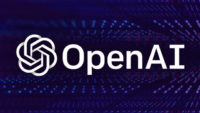There are now more than 600,000 users signed up for OpenAI’s ChatGPT Enterprise, up from 150,000 in January of this year. A surge, by any standards, it has sent OpenAI doubling down on the B2B approach as a way to turn artificial intelligence into a profitable business — something it is under some pressure to do in order to satisfy its obligations to investors. The company is also amping up its Custom Model training program, aimed at helping enterprise clients develop individually tailored generative AI technology for specific use cases and applications.
But the B2B AI sector is crowded, and competing there puts OpenAI up against companies including Anthropic, Cohere and even its own biggest investor, Microsoft, all of which are pursuing business customers.

ChatGPT Enterprise “represents the most significant effort by OpenAI to make money from its AI chatbot,” Bloomberg writes, noting the business version of ChatGPT was launched in August, with the promise of “added features and privacy safeguards, including data encryption and a guarantee that the startup won’t use information from customers to develop its technology.”
OpenAI Chief Operating Officer Brad Lightcap is “tasked with building out new sources of revenue for the AI startup and proving that there’s significant money to be made from generative AI,” reports Bloomberg, which was told by the executive that 2024 is “the year of adoption for AI in the enterprise. We’re just seeing tremendous momentum.”
Lightcap is running point on licensing negotiations with media companies for rights for OpenAI to train models on their content, “and be displayed in the ChatGPT app,” according to Bloomberg.
TechCrunch points out that the Custom Model program was launched in 2023 at OpenAI’s inaugural DevDay developer conference, “offering companies an opportunity to work with a group of dedicated OpenAI researchers to train and optimize models for specific domains.”
Since then, “dozens” of enterprise customers have enrolled, TechCrunch reports, noting that although the models are fine-tuned and custom trained, they’re built “using OpenAI’s base models and tools (e.g. GPT-4),” for what OpenAI says are “customers that ‘need to more deeply fine-tune their models’ or ‘imbue new, domain-specific knowledge.’”
Meanwhile, OpenAI CTO Mira Murati’s suggestion last month that OpenAI’s Sora video generator may have been trained on YouTube content has triggered pushback from Google CEO Neal Mohan, with PC Magazine reporting his position is that “if OpenAI used his firm’s videos, that would be a problem” and a violation of terms of service.

No Comments Yet
You can be the first to comment!
Leave a comment
You must be logged in to post a comment.